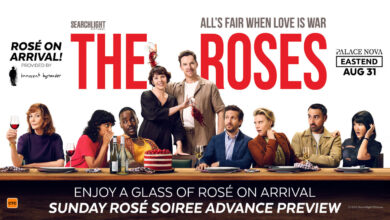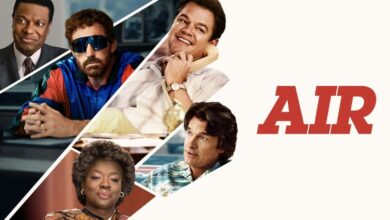Wonka Movie Review: Idea That Drives Coming-Of-Age Stories For Adults And Children
Cast: Timothée Chalamet, Keegan-Michael Key, Rowan Atkinson, Sally Hawkins, Jim Carter, Matt Lucas, Natasha Rothwell, Olivia Colman, Tom Davis, Mathew Baynton
Director: Paul King
Filmyhype.com Ratings: 4/5 (four stars)
Wonka, directed by Paul King and starring Timothée Chalamet, is the prequel to the 1971 film, Willy Wonka & the Chocolate Factory, again adapted for the big screen in 2005, with the title of the same name. The character of Willy Wonka, played in the 70s by Gene Wilder and in 2005 by Johnny Depp, is based on the 1964 novel by the writer Roald Dahl, The Chocolate Factory. Paul King’s Wonka tells the origins of the character, at the beginning of the adventure that will lead him to create the chocolate factory. Joined in the cast by Olivia Colman, Sally Hawkins, Calah Lane, Keegan-Michael Key, Paterson Joseph, Rowan Atkinson, Jim Carter, Hugh Grant, Tom Davis, David Hayman, and Matt Lucas, Wonka, arriving on the 14th of December 2023, is the perfect film for the Christmas holidays, a product not to be missed, to be seen at the cinema and from which to probably expect more than one sequel.
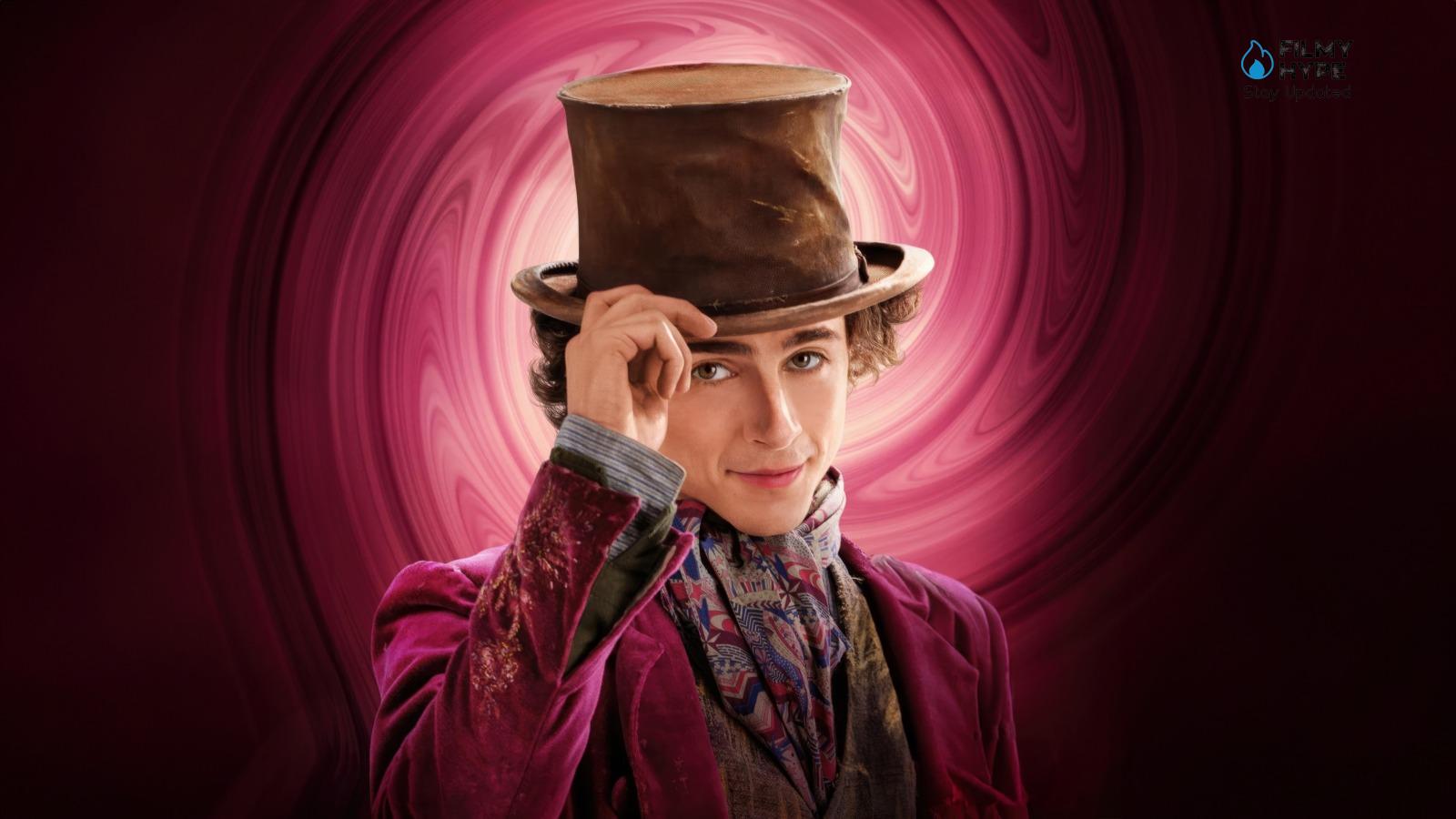
The primitive structure of the film would be enough to make it an extraordinary classic cinematic fairy tale for adults and children embellished with the eternal magic that has permeated musicals since the dawn of time. The operation in this sense is excellent from any point of view you look at it, but King, as is usual with his writing, decides to go further, even running the risk of overloading a classic coming-of-age plot with a political superstructure which goes even beyond the irresistible temptation (for a creative person) to tell the miracle that lies behind creativity. In this aim Wonka benefits from the fact of being able to divide his tasks, telling several stories which, as the running time progresses, alternate on the stage, then managing to tie everything together in the third act thanks above all to an aesthetic glue capable of to capture the viewer right away, catapulting him into a magical world without a name, but with an overflowing personality, without letting him go away.
Wonka Movie Review: The Story Plot
Willy Wonka is a young man who has just arrived in the city, where he knows and feels that everything will be different, that his skills will be loved and recognized, and that luck will always be on his side. But the difficulties that have accompanied dreams for years make themselves felt immediately and Wonka becomes the victim of a scam that involves not only him but other unfortunate figures who now live secluded in the basement of a fake hotel, at the service of the evil mistress and of his creepy sidekick. With the help of Little Noodle and, as the days pass, all the prisoners forced to work day and night in the washroom of the despicable owner of the hotel, Wonka devises a plan to sell his special chocolates, and thus earn the necessary money to open his first large chocolate shop. Success seems at hand, but Wonka soon makes enemies, competitors, sweets, and chocolate manufacturers who must reluctantly admit that Wonka‘s products are far superior. But they still have no intention of seeing their business and profits plummet because of him and are truly ready to do anything to put him out of business. But even Willy Wonka and his dream have a power that is difficult to defeat.
Wonka Movie Review and Analysis
Wonka is a film about the power of dreams and imagination, it is an explosion of colors and energy, a musical film that does not focus on memorable songs or dazzling performances but makes the simplicity and naturalness of its scenes one of its greatest merits. Wonka is a product that speaks to children and adults, understandable by the little ones, and with that, albeit minimal, amount of depth that is aimed at young people and adults. Wonka is an orphan boy, alone and full of life, ambitious and self-confident, altruistic and brilliant, exhibitionist and extravagant, brilliant and picturesque. With his chocolate-colored hat, and his unmistakable jacket which here is closer to fuchsia rather than purple, Chalamet’s Wonka brings his exuberance and vitality to the streets of a city whose most dreamlike and enchanted spirit needs someone who would wake him up.
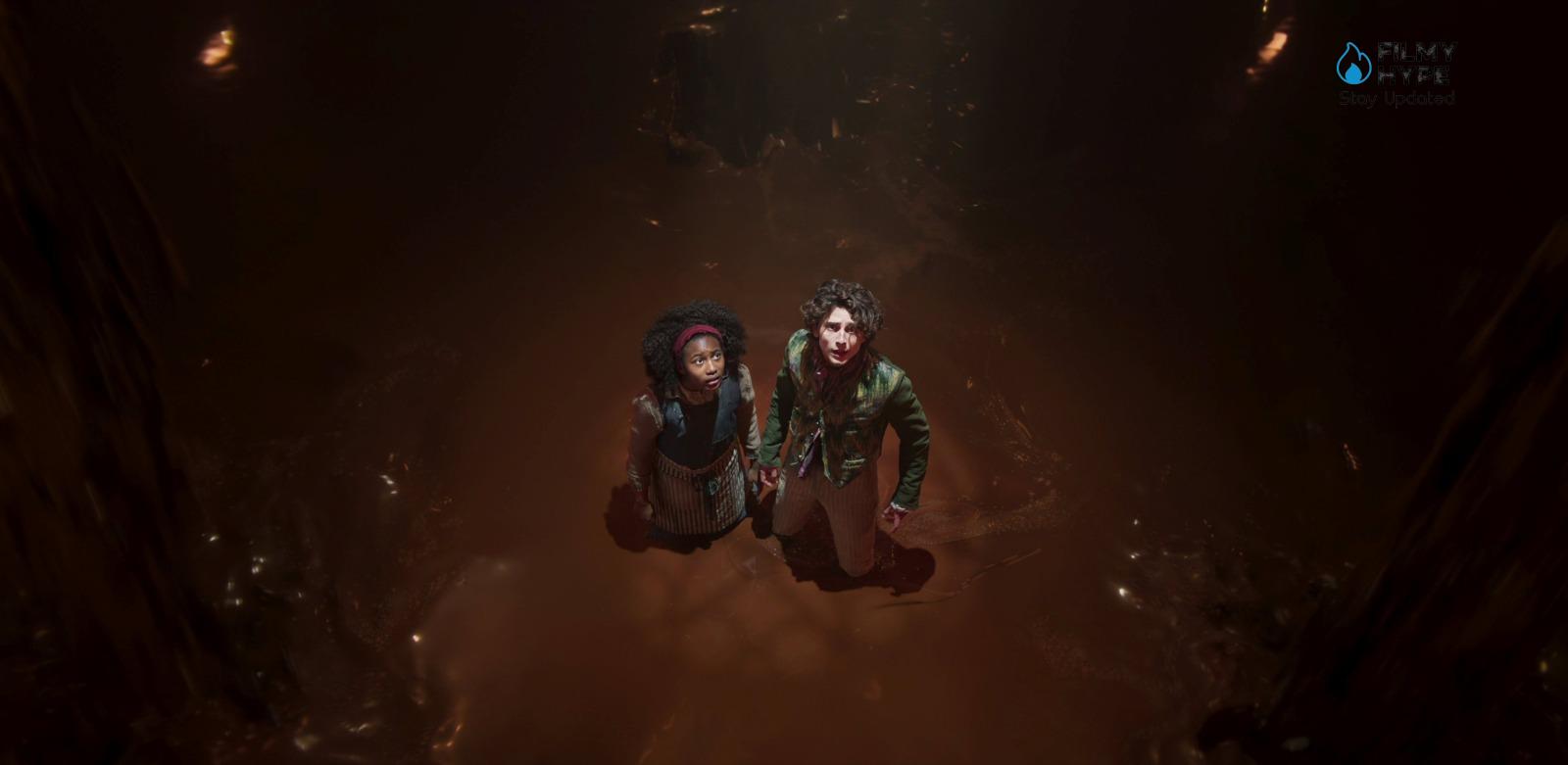
Wonka moves by walking on the clouds of a starry sky, building with flowers and rainbows what will become his chocolate factory. Paul King’s film is the surprising prequel to a well-known and loved character, previously played by 2 great actors. The cast is another element that contributes to the success of this Wonka, starting with its protagonist. If anyone still had doubts about Timtohtée Chalamet, it is clear that the young actor is a real star, and even in a quasi-musical, where he is the protagonist of solos and where he dances and sings, his masterful performance is the first thing that catches the eye. Chalamet not only plays the character to perfection, but he compares favorably with Gene Wilder and Johnny Depp, both flawless and memorable.
These are very different characters, because Chalamet is a novice Wonka, a dreamer who believes in the goodness of others, naive but combative, who does not give up on anything, is determined and moved by the strength of his ambitions, aware of his abilities, aware that magic and fantasy are the true driving force of the world. Among others, from Jim Carter to Olivia Colman, from Paterson Joseph to the very young Calah Lane, each actor is as essential as it is credible, as well as functional to the figure of the protagonist. Not to mention Hugh Grant Oompa Loompa, one of the most successful characters in the entire film, including make-up and costumes and the features of that figure who represents the exact opposite of the one who will change his life forever. Wonka is an extraordinary fairy tale that amazes its target audience and involves any type of audience, set in a perfect reconstruction of the early 19th century, which is colored with warm hues, and shades that increase in gradation reaching increasingly vivid, sharp, sparkling, and shining.
A film made of colors, lively, expressive, eye-catching, and effective, like its protagonist. From the actors to the direction, to the photography and set design, Wonka is as much the children’s film par excellence, which manages to be simple, but not didactic, linear but not for this reason exempt from universal dramas and themes, as it is a story for multiple generations, which explores the internal traumas that each of us sooner or later finds ourselves facing throughout our lives. Wonka is the cinema of the past and its representation today. And it is also further proof that there is no role that Timothée Chalamet is not capable of playing to perfection.
The ensemble is exceptional at working together and the choice to mix the actors like many ingredients allows Chalamet to enhance his histrionic acting, without burdening him with additional tasks (so much so that the moments in which he sins are those in which he finds himself duet with an irresistible Grant as Oompa Loompa in the 80s cruise version) and, indeed, inserting him into a network of stories where he can often be an alien among the earthlings (especially when another coming-of-age story takes center stage ), thus closing the circle around the thematic idea behind the title.
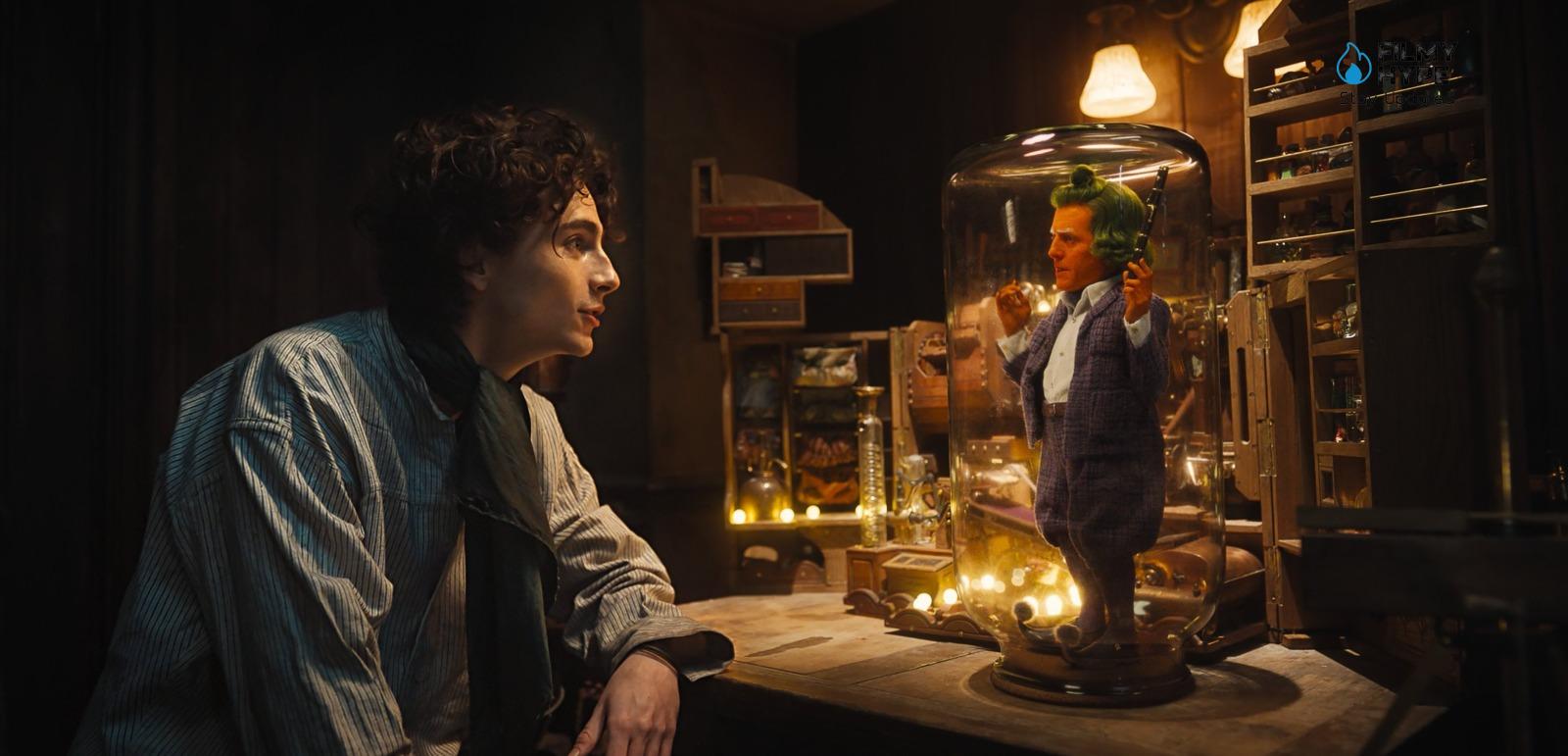
“Wonka” is not Willy, “Wonka” is the brand. “Wonka” is the idea behind chocolate, interpreted through an exceptional person. A marketing narrative transformed into a splendid fairy tale for everyone in which it tells of a visionary genius capable of supplanting the old trumpets who divide the world between themselves, disgust the poor, don’t care about the institutions and, in extrema ratio, submerge that duty with one’s assets. In this sense, King’s film can be included in the list of those films that take intellectual properties (in this case fantasy) to build a narrative on them in a very effective way with the plus of being able to boast a tangible sincerity both in its formal and content parts. We’ll see if the film will have the following that several of its relatives, even if not exactly close, have found.
In essence, Wonka purifies Dahl’s character of those “irregularities” that had guaranteed him a certain hold even on a savvier public, to return him to childhood, or rather to that age of innocence (of life, of spectators, and of cinema, given its nostalgically classic nature) whose return he hopes for. The key chosen by King is the relationship with the maternal: fortunately used sparingly, the scenes in which Wonka remembers his mother (Sally Hawkins) are fundamental in the ideal and sentimental economy of the film. They talk about the need for the feminine ingredient for the care of the world, the value of transmission, and the logic of tenderness. And if men aren’t all bad, the film’s villains are mostly men. In Wonka they prefer to call them greedy and one of the proverbs often repeated by Willy’s gang reads: “The greedy always win over the needy”.
Despite its gentle aura, there is no shortage of provocations, even if disguised: what do those chocolates that affect your mood and give psychotropic effects make you think of? Especially since they are addictive in some. The rest of the market has a doping nature. From this point of view, the film renounces the working-class accent of the original novel in favor of an internal criticism of capitalism, of which it distinguishes one that is harmful, prevaricating, and lobbyist and another based on free initiative and the quality of the offer. Reminding us that the real difference in the product is not always made by ideas. It’s also important to feel the heart of it.
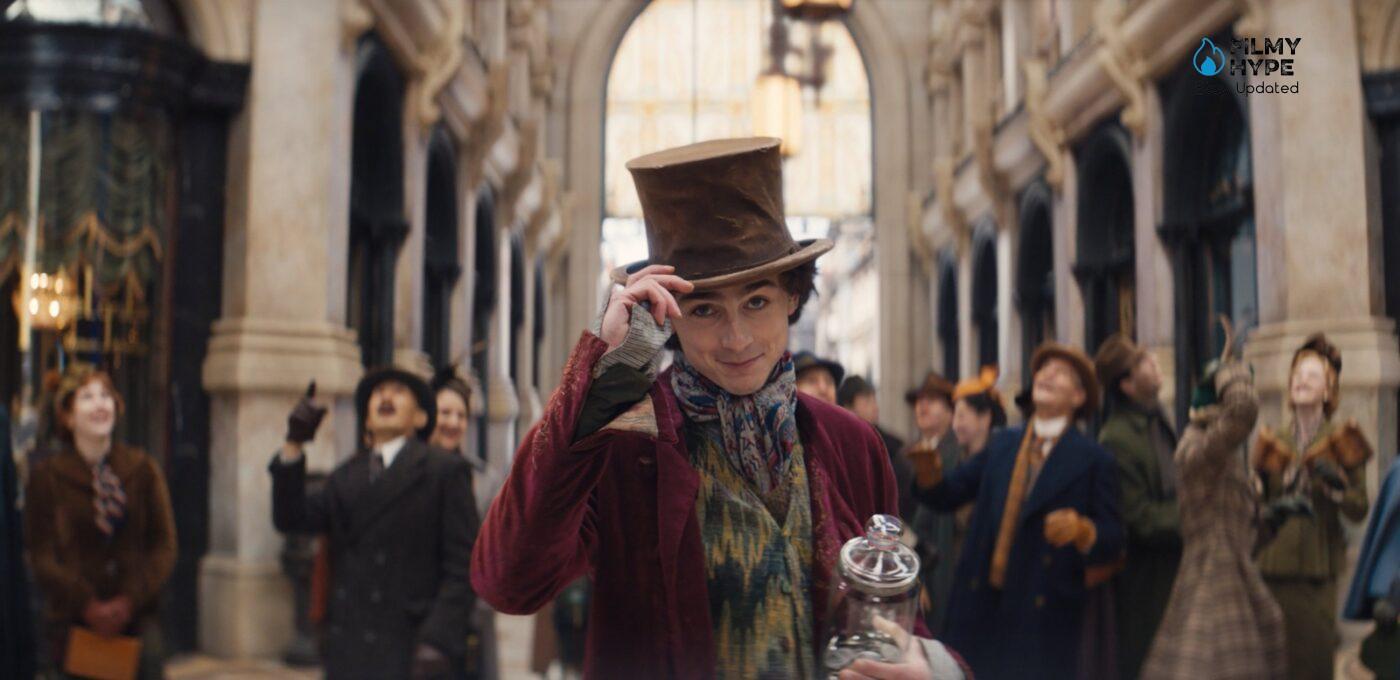
What makes Wonka a perfect family film is not only the light-hearted story full of jokes, as well as the bizarre protagonists and the lively songs, but also the direction of Paul King, capable of giving a live-action film with aesthetics very similar to that of a cartoon, so much so that one almost regrets not using the animation technique for a film of this type. From the opening sequence and the first scenes we are thrown into a world that we understand does not follow all our rules. We get to know Wonka through crooked shots, a frenetic pace, and a song that is sometimes joyful, sometimes melancholy, while gags follow one another in the background and Willy jumps here and there. The tones of the film are clear: the atmosphere is fairy-tale, almost surreal, as are the characters and the events. The costumes and sets are very colorful, and if we had had a good, animated film, those colors would most likely have been even more spectacular. Between a light bulb that turns on above your head and a flight in the sky with balloons, the film is more cartoonish than you might expect, which gives even more credibility to a story that has little or nothing believable.
In a disengaged film full of fantasies, there is also a certain adherence to reality, so everything that seems purely fairy-tale often becomes a metaphorical representation of some elements of our world. Thus the chocolate cartel is the mafia-tinged alliance between three large companies, which eliminates any form of competition to “divide the monopoly”, the boarding house where Willy and Noodle become friends is a denunciation of exploitation, in particular that of minors. Chocolate itself becomes a symbol of temptation, and therefore a currency behind the corruption of the police or religious authorities. Again, Wonka‘s protagonists are all victims of an oversight, of a moment of weakness or distraction, confirming the fact that even in a magical reality, a moment is enough to see your life change. Precisely these realistic dynamics in a fantasy world make the film appreciable by both adults and children.
Wonka Movie Review: The Last Words
Wonka is the new film by Paul King based on the famous character by Roald Dahl, this time brought to the stage by Timothée Chalamet, flanked by an exceptional cast made up of Calah Lane, Olivia Colman, Tom Davis, Keegan-Michael Key, Sally Hawkins, Paterson Joseph, Hugh Grant, Rowan Atkinson, and Jim Carter. A very elegant musical that masterfully exploits the primitive idea that drives coming-of-age stories for adults and children, creating a film that is effective in its classic and contemporary nature. This last aspect is encouraged by writing from the collective will, in which an attempt is made to reinterpret the current situation of bad capitalism by overturning the idea of individualism as an end in itself but rewarding the idea of sharing and imagination. It should be underlined because this aspect could have weighed down the film a lot, which instead, despite a few not-very-successful points, holds up well.



